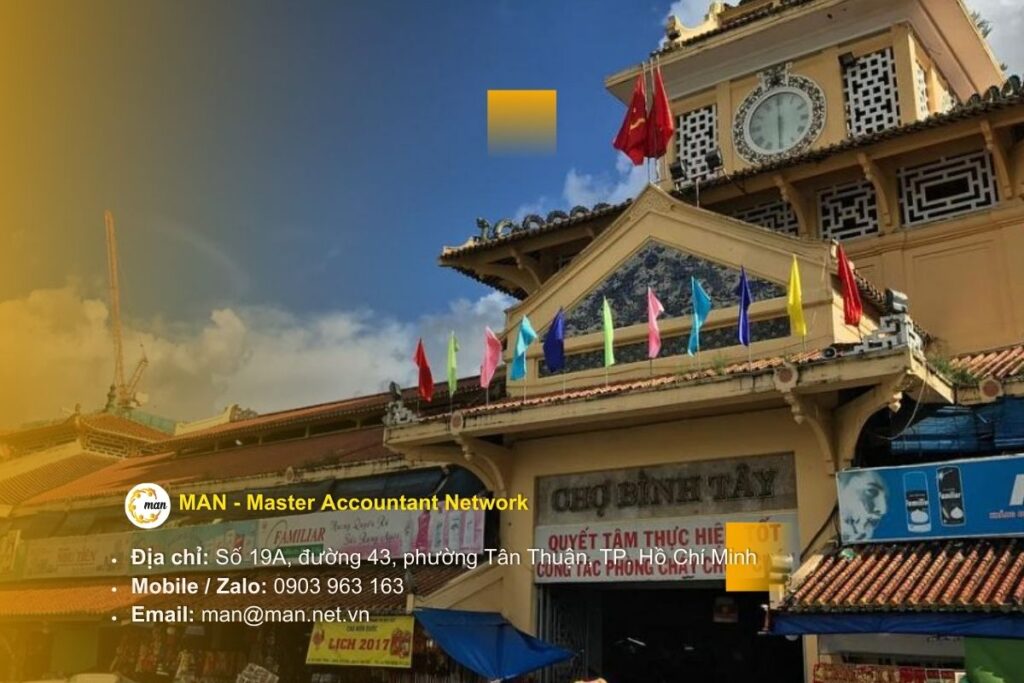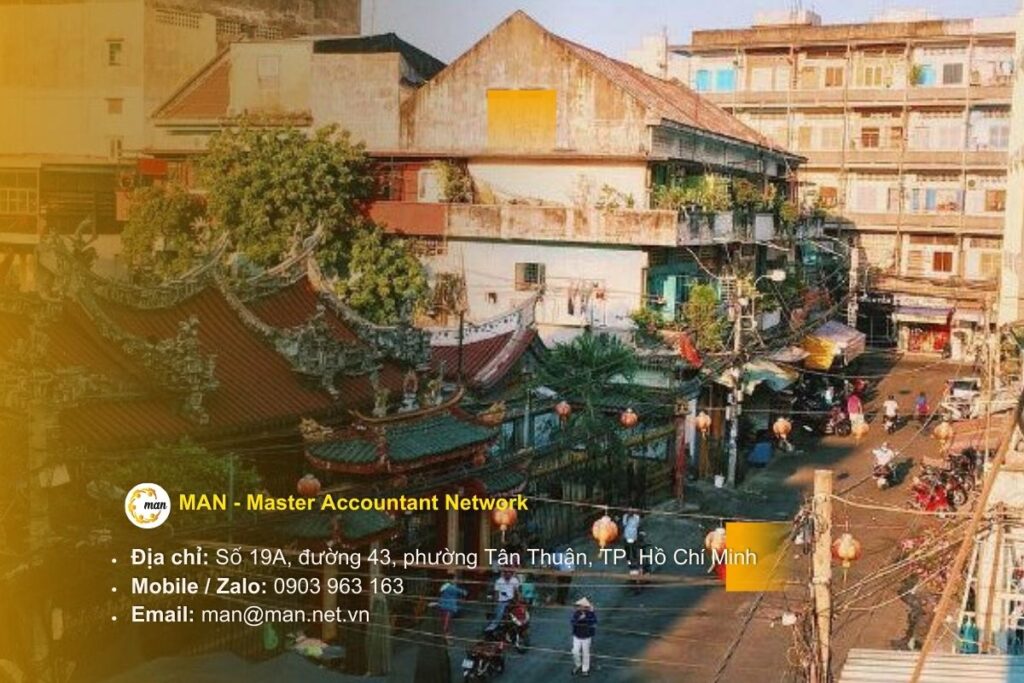November 5, 2020, Decree 132/2020/ND-CP on related-party transactions was officially issued and took effect from December 20, 2020, marking an important turning point in tax management for enterprises with related-party transactions in Vietnam. The Decree stands out with notable points such as expanding the scope of related parties, updating the method of determining the price of related-party transactions based on the principle of independent transactions, adjusting the threshold to control interest expenses and adding cases of exemption from preparing a dossier to determine the price of related-party transactions. Compliance with Decree 132/2020/ND-CP on related-party transactions helps enterprises optimize tax benefits, reduce legal risks, and increase transparency in financial management.
Highlights of Decree 132/2020/ND-CP on related-party transactions
Among the highlights of Decree 132/2020/ND-CP on affiliate transactions, one of the most important and most concerned changes is the regulation on related parties. These regulations not only expand the scope of identifying related parties but also detail how to identify control and management relationships between enterprises, thereby creating a transparent and fair legal basis for tax management of related-party transactions.
See details: Affiliated relationships according to Decree 132/2020/ND-CP
Regulations on related parties according to Decree 132/2020/ND-CP on related transactions
Previously at Decree 20/2017/ND-CP While Decree 132/2020/ND-CP only stipulates the scope of related-party transactions as transactions in business activities, it now expands the scope of related-party transactions to include:

- Buy, sell, exchange, rent, lease, borrow, lend, transfer, assign goods.
- Providing services between related parties.
- Borrow, lend, provide financial services, financial security.
- Other financial instruments used between related parties.
- Buy, sell, exchange, rent, lease, borrow, lend, transfer, assign tangible and intangible assets.
- Agreement to buy, sell, and share resources such as assets, capital, and labor.
- Sharing costs among related parties.
After clearly defining the types of transactions within the scope of related parties, Decree 132/2020/ND-CP on related party transactions also adds many specific cases of related parties. These additions help expand the scope of application, while creating a clear and transparent legal basis for tax management and determining transaction prices between related parties.
Decree 132/2020/ND-CP on related-party transactions adds cases with related parties
While Decree 20/2017/ND-CP only mentions 10 cases of related relationships, Decree 132/2020/ND-CP on related transactions adds 01 case, specifically:
- Enterprises have transactions of transferring or receiving the transfer of at least 251 TP3T of capital contributions of the enterprise's owner during the tax period; borrowing or lending at least 101 TP3T of capital contributions of the owner at the time of the transaction during the tax period with individuals operating or controlling the enterprise or with individuals in one of the relationships prescribed in Point g, Clause 2, Article 5 of Decree 132/2020/ND-CP on related-party transactions.
Decree 132/2020/ND-CP on related-party transactions continues to provide regulations on interest expenses to ensure transparency and fairness in determining taxable profits. These regulations not only limit interest expenses related to related-party transactions but also provide guidance on how to handle expenses exceeding the control threshold, helping businesses optimize tax benefits and reduce legal risks.
Decree 132/2020/ND-CP on related-party transactions regulates loan interest expenses
Decree 132/2020/ND-CP Regarding related-party transactions, there have been important adjustments related to interest expenses, to ensure transparency, fairness and compliance with international practices in tax management. Specifically:

- Raising the limit on interest expenses from 20% to 30%: Previously, Decree 20/2017/ND-CP allowed enterprises to deduct interest expenses up to 20% of EBITDA, but Decree 132/2020/ND-CP on related-party transactions has increased this ratio to 30%, creating more favorable conditions for enterprises in balancing their finances, while still maintaining the limit to avoid abusing interest expenses to reduce tax obligations.
- Allowing deduction of interest expenses after deducting deposit and loan interest: When calculating interest expenses, enterprises are allowed to calculate based on the actual loan interest after deducting deposit interest or interest from other loans. This regulation helps accurately reflect the actual financial costs arising from related transactions, improving transparency and compliance with tax laws.
- Carrying over interest expenses exceeding the control threshold to the following tax years: If interest expenses exceed the control threshold 30%, the excess is not eliminated but carried over to the following tax years, helping businesses optimize interest expenses over time, while ensuring compliance with the provisions of Decree 132/2020/ND-CP on related-party transactions.
These regulations demonstrate the efforts of tax authorities to balance the interests of enterprises and the obligation to comply with the law, while creating a clear and transparent legal basis for related-party transactions.
Add objects not subject to interest expense control threshold
To clarify the differences between Decree 132/2020/ND-CP on related-party transactions and the previous Decree 20, especially on loans recognized within the scope of related-party transactions, the table below summarizes important additions. These changes not only expand the scope of legal loans but also create a clear and transparent legal basis for tax management for enterprises participating in development loan programs, national target programs and social welfare projects.
Board: Decree 132/2020/ND-CP on related-party transactions adds subjects not subject to control threshold.
| Decree 20/2017/ND-CP | Decree 132/2020/ND-CP |
| Not specified for the stated subject. | Official development assistance (ODA) loans and preferential loans from the Government are implemented in the form of the Government borrowing from foreign countries and re-lending to businesses. Loans to implement national target programs (new rural programs, sustainable poverty reduction). Loans for investment in programs and projects implementing the State's social welfare policies (resettlement housing, housing for workers, students, social housing and other public welfare projects). |
Through the comparison table above, it can be seen that Decree 132/2020/ND-CP on related-party transactions has expanded the scope of recognized loans compared to the previous Decree 20. These additions not only help businesses participating in development loan programs, national target programs or social welfare projects to be legally included in related-party transactions, but also increase transparency and fairness in tax management.
New regulations on preparation and submission of national profit margin report (CbCR)
In the content of regulations on preparing and submitting cross-border profit reports (CbCR), Decree 132/2020/ND-CP also provides specific requirements for the case of a parent company located in Vietnam and a parent company located abroad, to ensure transparency of tax and profit information.

The ultimate parent company is located in Vietnam.
According to Decree 132/2020/ND-CP on related party transactions, in case the parent company located in Vietnam has a global consolidated revenue in the tax period of VND 18,000 billion or more, it is obliged to prepare a Country-by-Country Profit Report (CbCR) and submit it to the tax authority within 12 months from the end of the fiscal year. This is an important new point, because Decree 20/2017/ND-CP previously did not have provisions on this obligation.
Overseas ultimate parent company
Decree 132/2020/ND-CP on related party transactions, the obligation to submit Country-by-Country Report (CbCR) for the case of the ultimate parent company located abroad is regulated quite detailed. The table below will clearly summarize the cases of non-mandatory submission and mandatory submission for businesses to easily compare and comply.
Board: Cases where CbCR must and must not be submitted according to Decree 132/2020/ND-CP on related party transactions.
| Case | Decree 132/2020/ND-CP |
| Not required to submit | Enterprises in Vietnam are not required to file CbCR if the Vietnamese tax authorities can receive the report through the automatic exchange of information (AEOI) mechanism with the country or territory where the ultimate parent company is resident. |
| Required submission | The country/territory where the ultimate parent company resides has an international tax agreement with Vietnam but does not have an agreement from the competent authority at the time of the report submission deadline. The country/territory where the ultimate parent company resides has an Agreement between the Competent Authorities and Vietnam but has suspended the information exchange mechanism or cannot automatically provide it to Vietnam. In case a foreign corporation has more than one subsidiary in Vietnam, the ultimate parent company must notify the Vietnamese tax authority in writing of the subsidiary designated to submit CbCR on behalf of the corporation. |
Through the above table, it can be seen that Decree 132/2020/ND-CP on related-party transactions has very specific regulations on the obligation to submit Country-by-Country Reports (CbCR) in the case of a parent company located abroad. Clearly defining when enterprises in Vietnam are not required to submit and when they must submit helps ensure transparency, consistency with international standards and limit tax evasion. Enterprises need to have a firm grasp of these regulations to avoid the risk of being penalized and proactively develop an effective compliance strategy.
Conclude
In general, Decree 132/2020/ND-CP on related-party transactions has brought about many important changes compared to the previous Decree 20, from expanding the definition of related parties, specifying the scope of regulated transactions, adjusting regulations on controlling loan interest expenses, to adding specific loans and strict regulations on the obligation to submit Country-by-Country Profit Reports (CbCR). These new points not only help the Vietnamese legal system approach international standards, but also enhance transparency, limit transfer pricing behavior and ensure fairness among enterprises.
However, this comes with stricter compliance requirements: businesses need to prepare complete documents, clear evidence and effective tax management strategies to avoid the risk of being taxed or penalized. In the context of deep integration, proactively updating regulations and timely implementation is the key to helping businesses minimize risks, optimize tax obligations and maintain sustainable reputation in the market.
Enterprises looking for companion solutions in consulting, reviewing related-party transaction records and tax compliance management, please connect now with us. MAN – Master Accountant Network to receive comprehensive and dedicated support.
Contact information MAN – Master Accountant Network
- Address: 19A, Street 43, Tan Thuan Ward, Ho Chi Minh City.
- Mobile/ Zalo: +84 (0) 903 428 622 (Ms. Ngan)
- E-mail: nguyenthikimngan@man.net.vn
Editorial Board: MAN – Master Accountant Network




